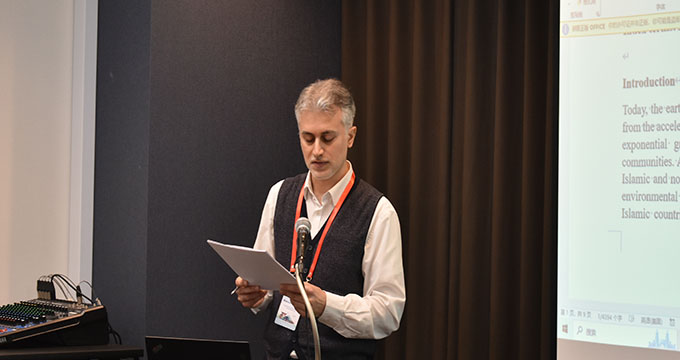

145 views||Release time: Apr 21, 2025
Scientific conferences are essential events where researchers present new findings, refine their work through peer feedback, and build professional networks. These gatherings span a range of formats—from traditional symposia and poster sessions to hands‑on workshops and innovative unconferences—and offer critical benefits such as career advancement, interdisciplinary collaboration, and policy impact. Emerging trends like hybrid and fully virtual models, AI‑driven personalization, and sustainability initiatives are transforming how conferences are organized and experienced. Platforms like iConf.com simplify the process by aggregating calls for papers, providing submission templates, and offering real‑time tracking and communication tools.

A scientific conference is a formal assembly organized by academic societies, institutions, or researcher groups, where participants share and discuss the latest research methods and results. These events facilitate the exchange of ideas, accelerate the dissemination of innovations, and foster a sense of community among scholars.
Symposia and Congresses: Themed sessions with invited talks and panel discussions, often spanning multiple days.
Workshops and Tutorials: Interactive sessions providing hands‑on training in specialized techniques or tools.
Poster Sessions: Visual presentations where researchers engage in one‑on‑one discussions, ideal for preliminary or ongoing work.
Unconferences and Lightning Talks: Participant‑driven formats without a fixed agenda, designed to encourage spontaneous collaboration and rapid idea sharing.
Presenting at a conference signals active engagement in the research community, elevating one’s profile and opening doors to grants, collaborations, and career opportunities.
Conference attendees receive constructive critiques from peers, enabling them to improve their experimental design and strengthen manuscripts prior to journal submission.
Events create social spaces for forging connections across disciplines, often resulting in co‑authored publications, joint grant applications, and long‑term research partnerships.
Blending in‑person and online participation broadens accessibility, allowing researchers from around the world to engage without the constraints of travel, while preserving interactive elements.
Advanced platforms use AI to recommend sessions, match attendees with collaborators, and tailor schedules based on individual research interests, enhancing the overall conference experience.
Organizers are adopting eco‑friendly practices—such as digital proceedings and carbon‑offset programs—and ensuring accessible formats for participants with disabilities, promoting equitable and responsible events.
Browse Calls for Papers: Use iConf.com to explore thousands of open CFPs across scientific disciplines.
Create Your Profile: Register to manage submissions, set reminders, and maintain author details.
Upload Abstracts and Papers: Follow clear formatting templates and submission guidelines aggregated by the platform.
Track Your Submission: Monitor review status in real time and communicate directly with organizers through built‑in messaging.
Maximize Exposure: Accepted papers are showcased to a global network of scholars, enhancing the impact of your research.
Engaging with scientific conferences is vital for advancing research, building collaborations, and staying abreast of emerging trends. By leveraging iConf.com’s user‑friendly submission workflow and comprehensive CFP listings, you can ensure your work gains maximum visibility and influence within the global scientific community. Visit iConf.com today to find and submit to the most relevant scientific conferences.